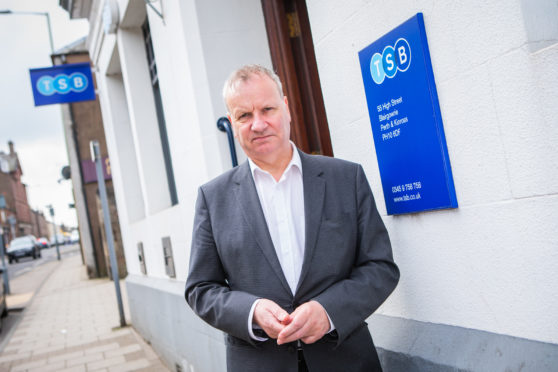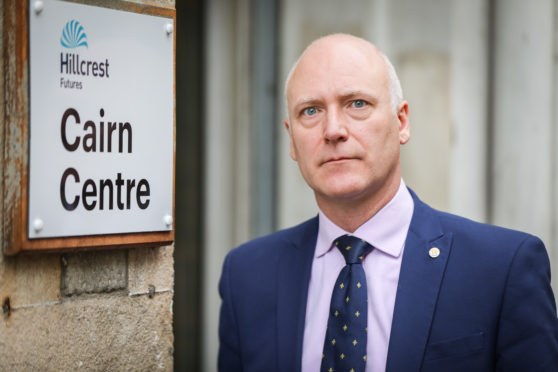The UK Government has been accused of prolonging Scotland’s drug death crisis after it officially ruled out declaring a health emergency, decriminalising possession, or trialling safe consumption rooms.
A prominent MP has predicted more misery will be heaped on Dundee and other tragedy-stricken communities in the years to come after Conservative ministers flatly rejected more than a dozen recommendations for action.
The decision threatened to reopen a rift with the Scottish Government, as Public Health Minister Joe FitzPatrick accused the Westminster administration of “refusing to take the action that will allow us to save the lives of those who are most at risk”.
Demands for an urgent intervention were made after drug deaths in Scotland soared by 27% to a record 1,187 in 2018.
The as-yet-unpublished figures for 2019 are widely feared to be even worse.
After conducting one of the most extensive inquiries into drugs in Scotland, MPs on the Scottish affairs committee at Westminster published a report in November which recommended a series of radical measures to tackle the problem.
They called on the UK Government to declare a “public health emergency”, start treating drugs as a health issue rather than criminal, decriminalise possession of small amounts, and trial the creation of a “safe consumption room”, among other ideas.
But, in an official response to the report that has been published on Monday, Crime and Policing Minister Kit Malthouse confirmed that the government had rejected all but three of the committee’s 19 recommendations.
Committee chairman Pete Wishart, MP for Perth and North Perthshire, was left frustrated by the decision.
“I very much anticipate that the difficulties we’ve seen in Dundee really won’t be any different next year, the same range of issues are going to emerge,” he said.
“I wish I could say something which would give any sort of comfort about what we should expect, but I’m afraid that is not going to be the case.”
He added: “It’s profoundly disappointing and depressing. We spent months on this inquiry and talked to absolutely everybody who has got a stake and interest in the drugs debate in Scotland.
“We spoke to both governments, the police, those with lived experience, those on the front line, and none of it has made any difference at all.
“There was an overwhelming consensus about the ways we need to move forward, and I think the general agreement is that the big levers of policy change that are required to be pulled now.
“We could do certain things, we could put sticking plasters over, but until we fundamentally change our approach things aren’t going to get better.”
On the proposal to stop treating possession as a criminal offence, Mr Malthouse said: “The decriminalisation of drug possession in the UK would not eliminate the crime committed by the illicit trade, nor would it address the harms associated with drug dependence and the misery that this can cause to families and communities.”
Calls for a pilot project to test “consumption rooms”, which are professionally supervised healthcare facilities where users can inject, were also dismissed.
“No illegal drug-taking can be assumed to be safe and there is no safe way to take them,” the minister said, whilst also pointing to legal complications which would require primary legislation to resolve.
Mr Malthouse added: “We reject the recommendation to declare a public health emergency but accept the importance of working across the UK to tackle drug misuse.
“The UK Government shares the committee’s concern about problem drug use and the very real damage that dependence on drugs such as heroin and crack cocaine can do to individuals, their families and whole communities.”
Mr FitzPatrick branded the response to the committee report “extremely disappointing”.
He said: “Not only have they rejected the recommendation to declare a public health emergency in relation to drug deaths in Scotland, they are, once again, refusing to take the action which would allow us to further embed a public health approach to tackling drugs harm, including piloting an overdose prevention facility in Glasgow.
“There is a strong body of evidence from a number of countries that taking a public health approach including these facilities can prevent fatal overdoses and encourage engagement with services and we have repeatedly called on the UK Government to allow them to be introduced.
“It’s clear the Misuse of Drugs Act is no longer fit for purpose. To enable innovations, such as a safer drug consumption facility, the law needs to change.
“The UK Government has, however, refused to take the action that will allow us to save the lives of those who are most at risk as a result of their drug use.
“We will continue to urge the UK Government to either take the necessary steps to allow for the set-up of these facilities, or to devolve the powers to Scotland so that we can.
“In the meantime the Scottish Government will continue to treat drug deaths as a public health priority and continue our work to improve outcomes for drug users in this country.”



